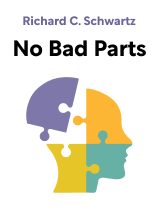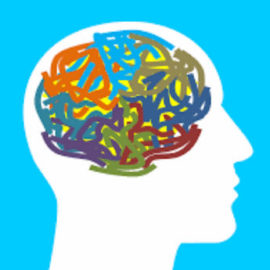

This article is an excerpt from the Shortform book guide to "No Bad Parts" by Richard C. Schwartz. Shortform has the world's best summaries and analyses of books you should be reading.
Like this article? Sign up for a free trial here.
Who are “exiles” in IFS? What role do exiles play in the psyche?
Exiles are key concepts in the Internal Family Systems (IFS) model. Exiles are the most vulnerable parts of ourselves that get triggered when we experience intense negative emotions such as fear, anxiety, or shame.
Keep reading to learn about the concept of IFS exiles and how exiles manifest in our behaviors.
Who Are IFS Exiles?
In the IFS, exiles are the youngest and most vulnerable versions of who we are, sometimes referred to as our “inner children.” They’re often the parts that have directly experienced some kind of trauma and then took on the burden of those emotions, leaving them trapped in the past.
While these inner children are often sweet, innocent, playful, and trusting, they’re also highly sensitive and prone to being hurt. Exiles are the parts of ourselves that we’re most likely to hide because we don’t want to experience their hurt or shame. For example, imagine you were yelled at for crying when you were a young child. This might create an exiled part of you that feels shame anytime you cry in front of other people.
(Shortform note: While the language of “exile” is unique to IFS, the concept of an inner child is not. First coined by psychologist Carl Jung, the concept cuts across different types of therapy and many therapists advocate for the importance of getting to know our own “inner child.” For example, inner child work is a trauma-informed therapeutic approach that focuses exclusively on exploring the feelings, needs, and experiences of a younger and more vulnerable version of ourselves—our inner child. The goal is to help individuals develop a more compassionate and accepting relationship with themselves and their past experiences. Therapy can include a range of activities, from journaling and visualization to role-playing or play therapy.)
Protectors
Where there are exiles, there are always protectors. Protectors are the parts of ourselves that take on the role of defending our exiles from future hurt. For example, if there was an exile that felt shame for crying publicly, there might be a protector who shows up when the exile is feeling especially sad who tells the exile to “suck it up.”
Schwartz distinguishes between two types of protectors:
Managers are protective parts that act preemptively to keep us safe by attempting to control our environment—carefully managing who we date, what we wear, and how we’re perceived to ensure that nothing can happen to trigger the same feelings experienced by our exiles. Managers are often our most critical inner voices. Their burden is containing and protecting the most vulnerable parts of who we are.
Firefighters are protective parts that act reactively when they think we’re in danger—usually when there’s an overwhelming flood of emotions. Firefighters want to remove us from what we’re feeling. They might make us throw ourselves into work, binge-watch a show, use substances to numb pain, or, in extreme cases, commit suicide, in an attempt to remove us from what we’re feeling. Their burden is suppressing powerful emotions when they do flare up.

———End of Preview———
Like what you just read? Read the rest of the world's best book summary and analysis of Richard C. Schwartz's "No Bad Parts" at Shortform.
Here's what you'll find in our full No Bad Parts summary:
- A detailed look at IFS—a psychotherapy model that challenges the idea of a unitary mind
- Why it's normal to have conflicting voices in your head
- What IFS therapy looks like in practice and its benefits






